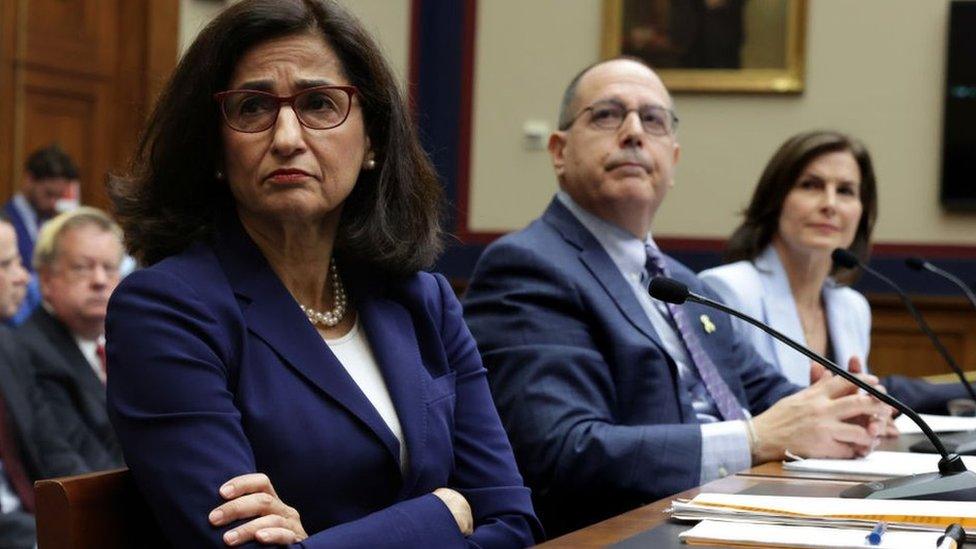US college protests: Hundreds more arrested across US in Gaza campus protests
- Published
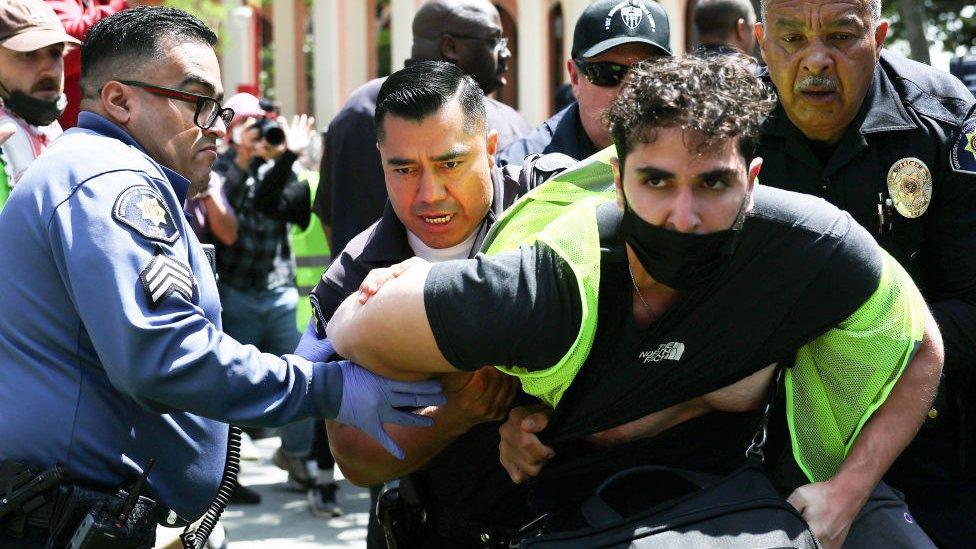
Pro-Palestinian protesters were arrested on trespassing charges at the University of Southern California
Police have arrested hundreds more protesters in locations across the US, as protests against the war in Gaza intensify across university campuses.
Some 108 arrests were made at Emerson College, Boston police told the BBC's US partner CBS News.
Earlier, 93 people at the University of Southern California (USC) in Los Angeles were taken into custody on trespassing charges.
Protesters and police also clashed at the University of Texas in Austin.
Authorities said 34 people were arrested there too.
Universities across the US have seen a growing number of students walk out of class or try to set up encampments to protest against Israel's military campaign in Gaza.
The latest arrests follow others at Columbia, Yale, Brown and New York University.
At LA's USC, arrests were made as students gathered in Alumni Park - where the university's main-stage graduation ceremony is scheduled to take place next month.
Police officers in riot gear cleared a pro-Palestinian encampment at the centre of the campus, preventing demonstrators from gathering.
Students received a 10-minute warning from police helicopters to disperse. Those who refused were arrested on trespassing charges.
Kelly Munz of the Los Angeles Police Department told journalists that officers were in the area and arrived to assist the university when protesters refused to leave.
"The university is a private campus and the group had been violating the orders - it was a trespass at that point," Ms Munz said.
On its social media channel, USC said the protest had now ended but the campus remained closed until further notice, adding: "students with USC IDs will have access through pedestrian gates and everyone who is on campus will be able to leave."
The protest was reported to have been largely peaceful at first, but then turned tense with the continued police presence.
Videos online showed protesters throwing water bottles at the police when they tried to detain one woman, chanting, "Let her go!"
Other protesters gathered around the officers, drowning out their warnings with "free Palestine" chants. Students, some wearing kaffiyehs were holding "liberated zone" signs, banging drums.
Elsewhere in the country, Boston police told CBS that three officers had been injured in the action at Emerson College - one of them seriously, though their condition was not life-threatening. No protesters were hurt, police added.
Students are said to have been camping out since Sunday, allegedly ignoring warnings to leave.
Emerson College has not yet commented on the arrests. In a previous statement, it said it supported the right to peaceful protests - while urging activists to comply with the law.
Meanwhile at Harvard University, students braved the cold to set up more than 30 tents in front of the John Harvard statue in Harvard Yard - the oldest part of the university - on Wednesday night. They remained there on Thursday.
Chaotic scenes at University of Texas
Earlier, there were chaotic scenes on the campus of the University of Texas in Austin as hundreds of local and state police on horseback, holding batons, dispersed protesters.
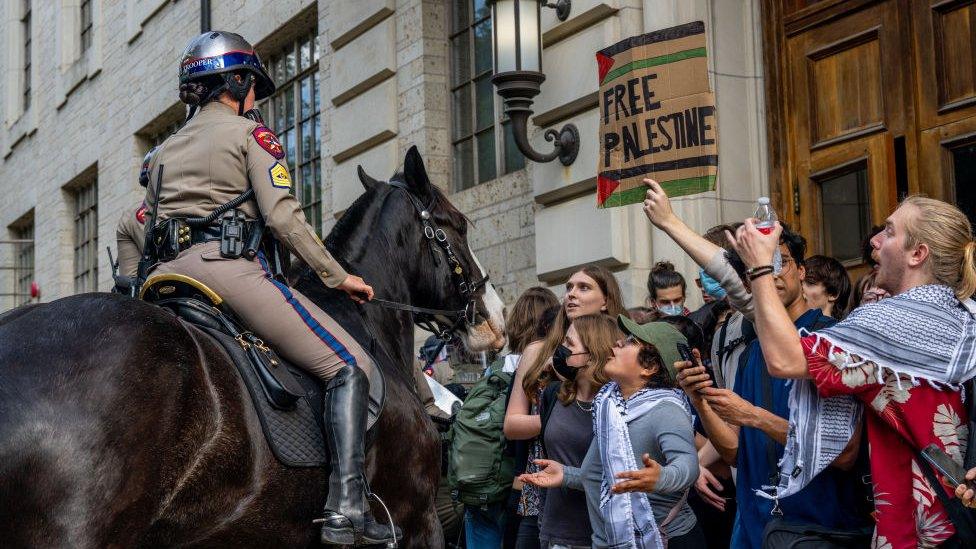
Texas police on horseback charged at protesters
Governor Greg Abbott deployed the National Guard to stop the demonstrators from marching through campus, saying, they "belong in jail".
Social media footage shows officers pushing into the crowd, while warning demonstrators on loudspeakers to leave the premises or face arrest.
"I command you in the name of the people of the state of Texas to disperse," the announcement said.
Thirty-four people were arrested, officials said.
A photographer for Fox News 7 Austin was seen falling to the ground with his camera while surrounded by riot police. The US outlet later confirmed that the cameraman was arrested.
Other protesters were seen bundled to the ground by riot police. But soon afterwards around 300 demonstrators regrouped, sat on the grass under the school's iconic clock tower and chanted "free Palestine".
Protests spread after Columbia arrests
Protests against Israel's war in Gaza have spread across the country after more than 100 people were arrested at New York City's Columbia University a week ago, after police tried to clear an encampment.
Protesters at Columbia heckled the visiting Republican House Speaker, Mike Johnson, earlier on Wednesday.
The entire campus had been adorned by dozens of Palestinian flags and placards with slogans such as "real Americans stand with Gaza", "demilitarise education" and "there are no universities left in Gaza".
Last week, USC cancelled outside speakers for this year's graduation ceremony, following controversy surrounding the cancellation of the university's valedictorian speech, due to be given by Muslim student Asna Tabassum.
The university said her speech should not go ahead due to security concerns, after complaints that her social media presence was antisemitic.
Ms Tabassum said she was the target of "a campaign of hate meant to silence my voice".
Across the US, protest tents have sprung up atHarvard University, the University of California - Berkeley, Yale, Emerson and the University of Michigan.
Following mass arrests of Gaza solidarity activists across the US, Amnesty International published a press release urging universities "to safeguard and facilitate all students' right to peacefully and safely protest or counter-protest on their campuses."
Pro-Israel and Jewish groups claimed some protests included antisemitic elements and said they did not feel safe as a result.
At Columbia University's main campus in New York City, several Jewish students expressed concerns about a threatening campus environment.
But other demonstrators argued that incidents of harassment of Jewish students had been rare and blown out of proportion by those opposed to their demands.
Activists have been calling for universities to "divest from genocide" and to stop investing large school endowments in companies involved in weapons manufacturing and other industries supporting Israel's war in Gaza.
Following a case brought by South Africa the International Court of Justice (ICJ) has found that Palestinians had "plausible rights to protection from genocide" - rights which were at a real risk of irreparable damage Israel strongly denies any suggestion that it is committing genocide in the Palestinian enclave.
The war began when Hamas-led gunmen carried out an unprecedented attack on southern Israel on 7 October, killing about 1,200 people - mostly civilians - and taking 253 others back to Gaza as hostages.
More than 34,305 people - most of them children and women - have been killed in Gaza since then, the territory's Hamas-run health ministry says.
Update 20th May: This article has been amended to clarify the context behind the ICJ's use of the word "plausible" in its ruling on the 26th January.
Related topics
- Published24 April 2024
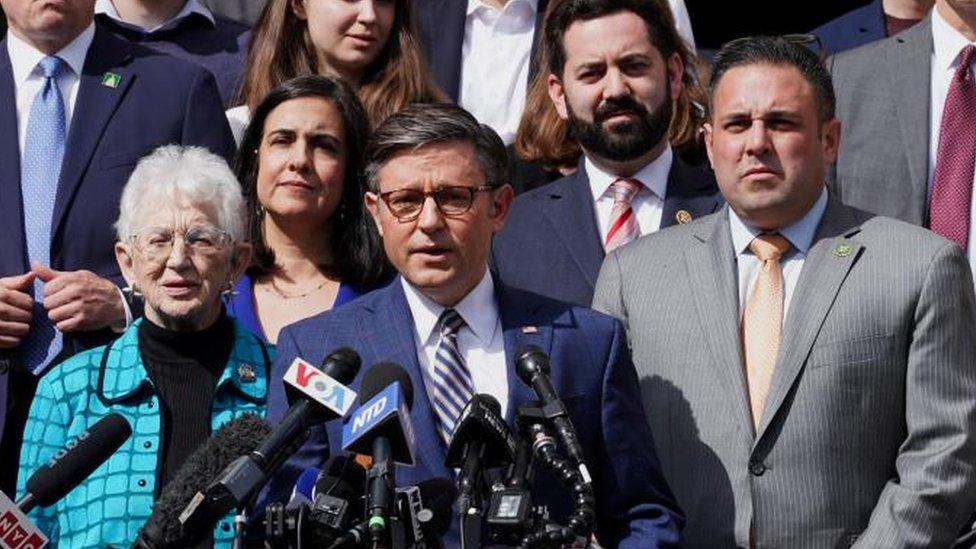
- Published24 April 2024
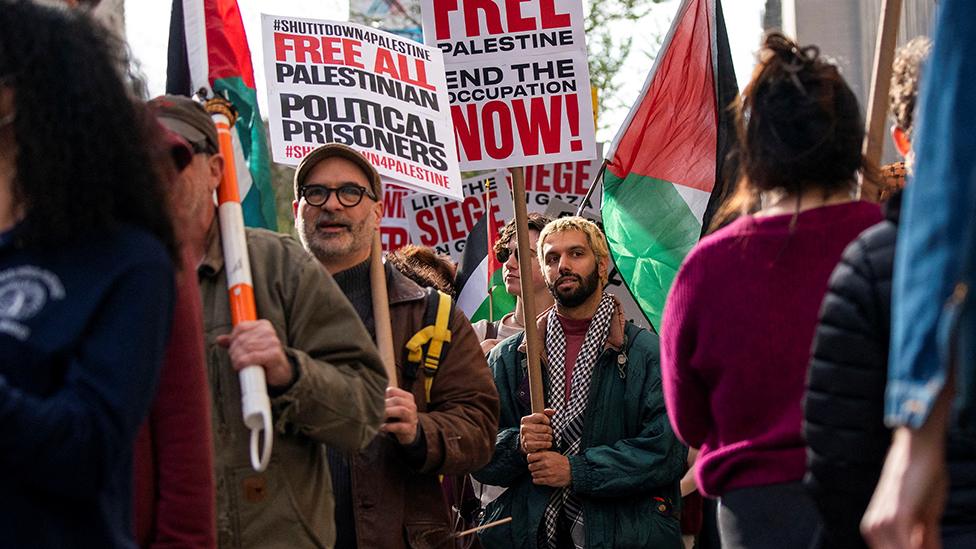
- Published20 April 2024
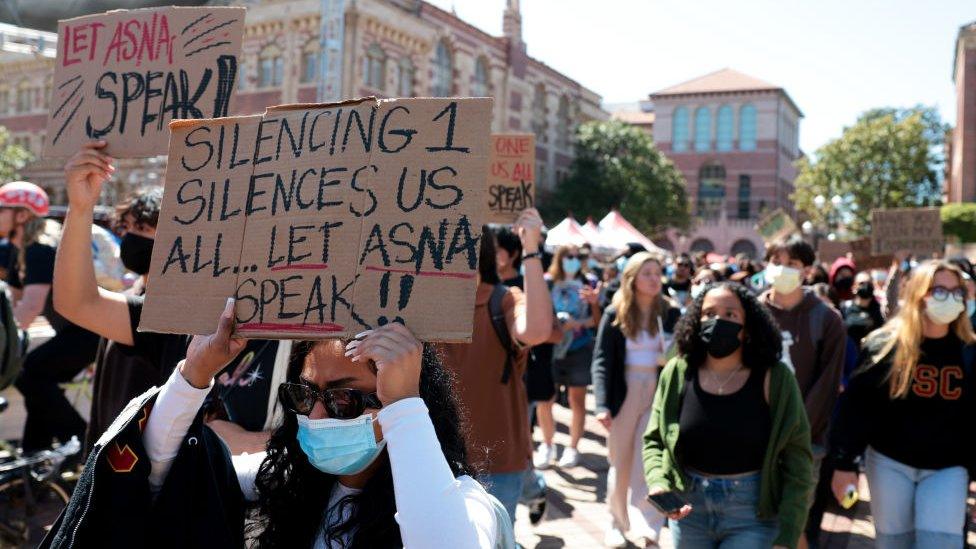
- Published23 April 2024
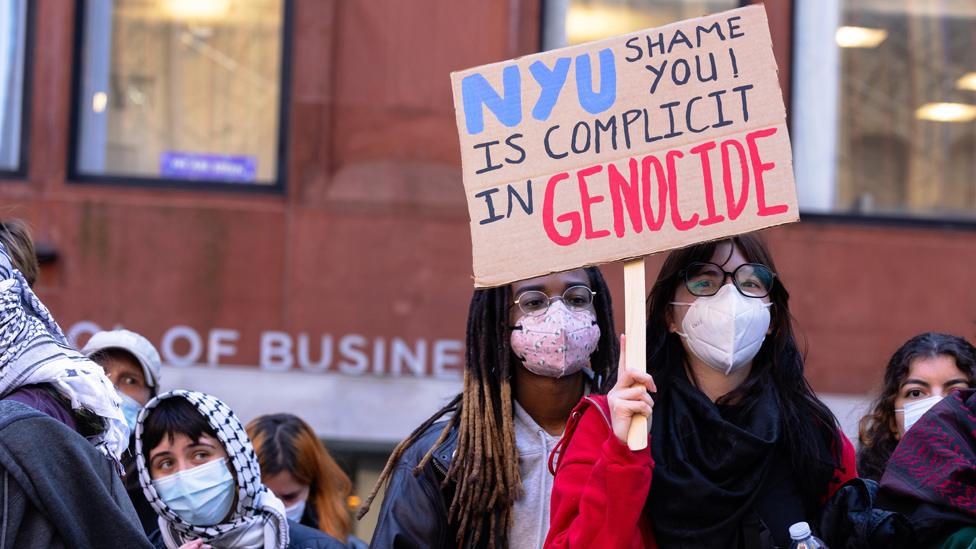
- Published22 April 2024
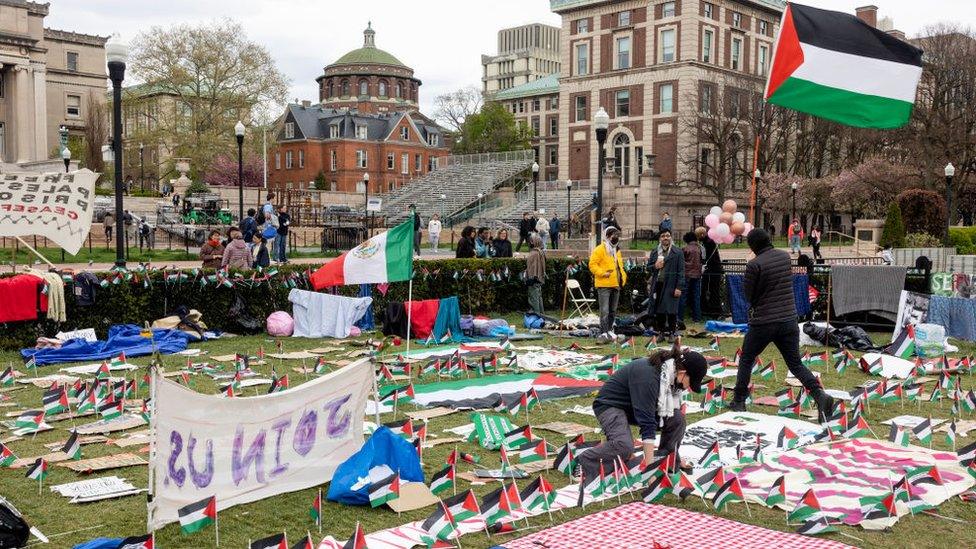
- Published18 April 2024
